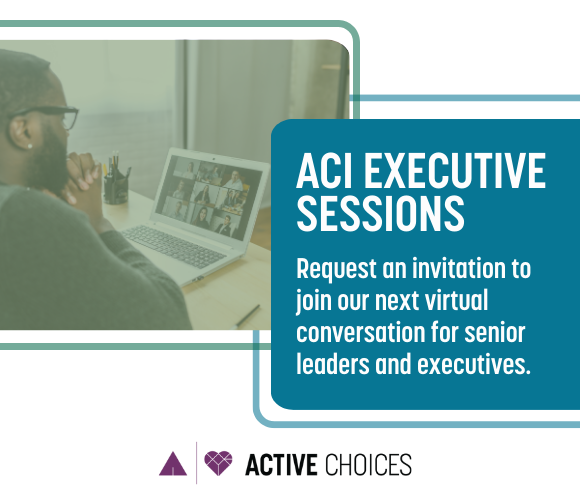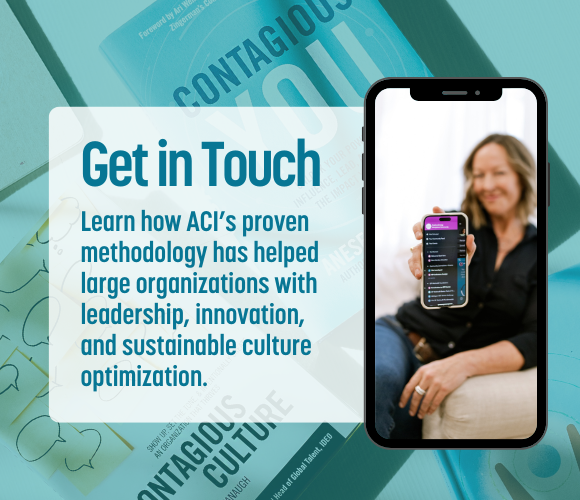3 Questions Corporate L&D Leaders Can Ask to Determine if there is a Stickiness Problem
Your organization is investing in training, coaching, and cultural transformation initiatives and spending a lot of time, energy, money, and “workforce trust equity” in doing so. It’s a big lift with lots riding on the success of these initiatives.
But are they working?
Are they sustainable?
Are your people getting what they need from them?
And are they actually helping you create the results you want from doing them?
If you’re not sure, you could have a stickiness problem!
Here are three questions to consider when engaging in any kind of training, leadership, or cultural transformation initiative:
1) Have we been intentional and done the legwork to ensure we’re addressing the right problems? Or are we in react mode?
So often our team meets with organizations who are desperate to create change and address their attraction, retention, and workforce energy challenges. But often — because they’re so busy and can’t see the forest through the trees — they’re in react mode. They haven’t done the work to step back, consider all factors, and intentionally strategize their plan. This can result in a “whack-a-mole” and “flavor of the month” effect: ineffective initiatives that don’t go deep enough to create sustainable culture change. (And ultimately a lack of trust in the workforce for the next initiative you bring in.)
2) Are people “doing” the new skills and applying their training, but your culture and the energy of the organization still feels off?
Has your company committed to a program and implemented it, but your employee satisfaction/engagement/pulse surveys are still not improving? Or do your people still keep leaving?
So often — even with the best of intentions — training and cultural initiatives are implemented, but the company can’t figure out why the return on investment is lacking or why the initiatives and skills aren’t sticking. The majority of time this happens because a critical part of the equation has been left out of the initiative: the people!
At ACI, we address this critical part through our IEP Methodology and the Positive Energy Workplace Initiative™. The result? Optimal ROI is achieved, people feel good in the process, and the new training you just invested in actually WORKS and sticks around.
3) Do people follow your leaders because they WANT to, or because they HAVE to?
You can do all the training in the world, make your company lean, invest in the best of the best tools and resources. . . but if you are not paying attention to the intentions, energy, and presence of your leaders you could possibly be doing more harm than good as you continue with cultural initiatives and only address problems on a surface level.
At ACI, we focus on developing each person’s IEP, or Intentional Energetic Presence®, and how they show up energetically in any situation. Without paying attention to this, you are leaving a ton of opportunity for having an authentically positive energy workplace on the table.
If you’re not sure of the answer to this question, ask yourself: Does it feel good to work here? Do people engage directly? Are we achieving a new level of honest productive conflict and communication? Do people feel safe to speak up and give each other feedback? Are our leaders modeling the behaviors we’d like to see?
Bonus Questions:
- Have we had any major initiatives go off the rails lately?
- Have we had low engagement/pulse survey scores?
- Has there been a large exodus in the last three months?
All three of these events are symptoms of the issues previously mentioned and can most often be addressed, resolved, and optimized by taking a step back and applying the IEP work into your processes.
Want to be proactive and optimize your time, energy, financial investments, and workforce trust?
Our customized offerings are designed to integrate the IEP principles into your organization and help you create real and sustainable change that builds the energy of your workforce versus depletes it. In our programming, we incorporate data driven diagnostic components, strategic offerings such as executive strategy labs and training tracks for your organization’s specific situation (that also are designed to support your other initiatives), and adult learning best practices, including experiential micro- and macro-learning opportunities.
Check out more details here or contact us to explore how we can help make your company a better place to thrive and your workforce a happier, more effective group of leaders.
.png)



-2.png)


